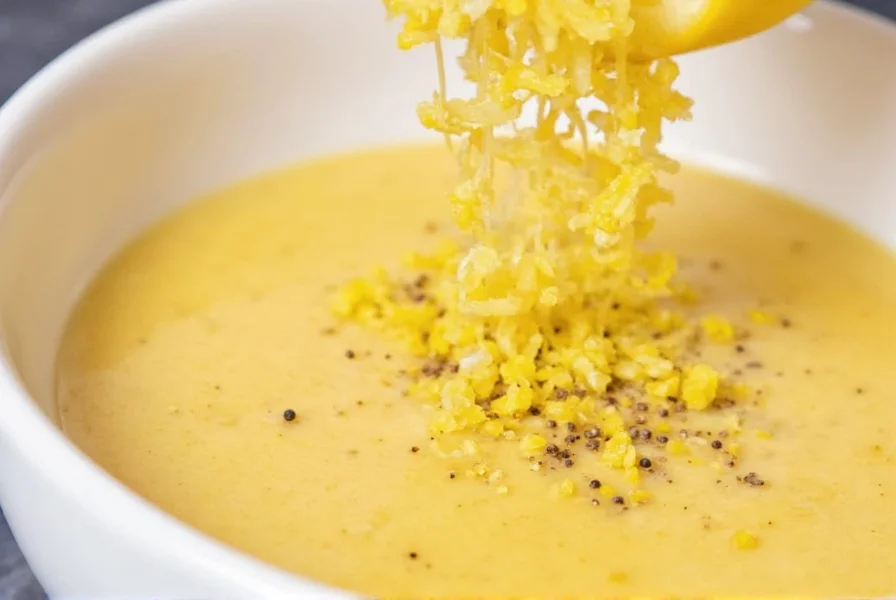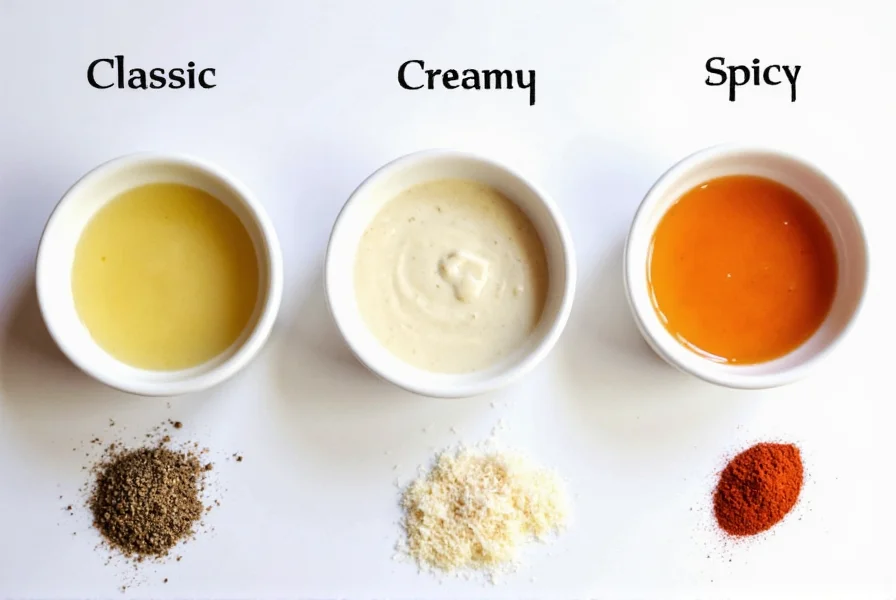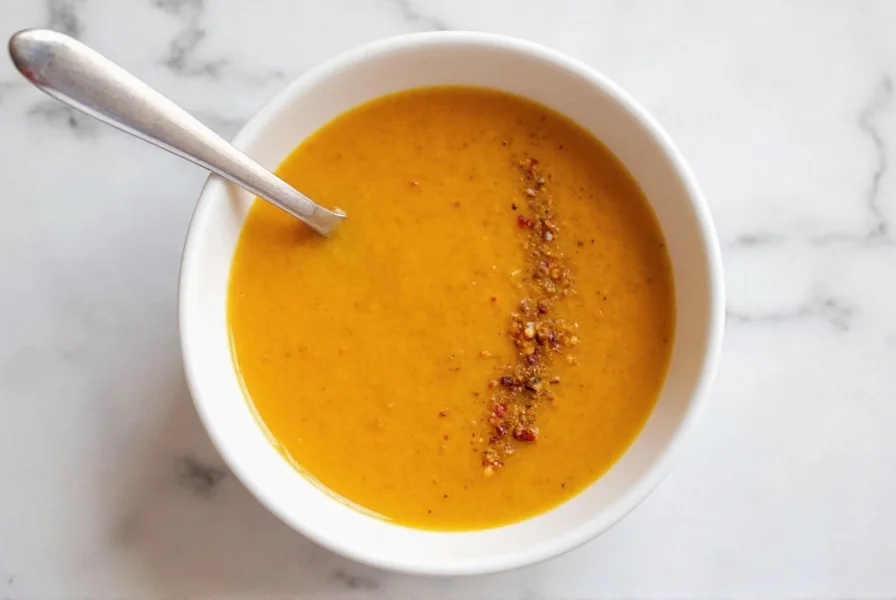The quickest way to make authentic lemon pepper sauce: Combine 1/2 cup mayonnaise, 2 tablespoons fresh lemon juice, 1 tablespoon lemon zest, 1 teaspoon freshly cracked black pepper, 1 minced garlic clove, and 1/4 teaspoon salt. Whisk until smooth. For a creamy version, add 2 tablespoons sour cream. Let rest 30 minutes before serving to allow flavors to meld. This basic recipe serves 4 and takes just 10 minutes to prepare with common pantry ingredients.
Making exceptional lemon pepper sauce at home is simpler than you might think, yet many home cooks struggle to replicate that bright, zesty flavor profile found in restaurants. The secret lies not just in the ingredients but in their quality and preparation technique. This guide provides a foolproof method for creating a versatile lemon pepper sauce that elevates everything from grilled chicken to roasted vegetables.
Why This Lemon Pepper Sauce Recipe Works
Unlike store-bought versions loaded with preservatives and artificial flavors, homemade lemon pepper sauce offers superior freshness and customization. The acidity from fresh lemon juice cuts through rich proteins while the cracked pepper provides texture and heat. When properly balanced, this sauce enhances rather than overwhelms your dish.
Essential Ingredients for Perfect Lemon Pepper Sauce
The quality of your ingredients directly impacts the final result. Here's what you'll need for the best homemade lemon pepper sauce recipe:
| Ingredient | Amount | Key Notes |
|---|---|---|
| Mayonnaise (full-fat) | 1/2 cup | Provides creamy base; avoid light versions for best texture |
| Fresh lemon juice | 2 tablespoons | Bottled won't compare; juice just before using |
| Lemon zest | 1 tablespoon | Use microplane for fine zest without bitter pith |
| Freshly cracked black pepper | 1-2 teaspoons | Coarse grind provides texture and aroma |
| Garlic (minced) | 1 clove | Raw for punch; roasted for milder flavor |
| Salt | 1/4 teaspoon | Enhances all flavors; adjust to taste |

Step-by-Step Preparation Guide
Follow these precise steps for restaurant-quality lemon pepper sauce every time:
- Prepare citrus components: Zest one lemon using a microplane grater, being careful to avoid the bitter white pith. Roll the lemon firmly on your counter before cutting to maximize juice yield. Juice the lemon and strain to remove pulp and seeds.
- Combine base ingredients: In a medium bowl, whisk together mayonnaise, lemon juice, and zest until completely smooth with no streaks.
- Add seasonings: Stir in freshly cracked black pepper, minced garlic, and salt. For optimal flavor development, use a mortar and pestle to lightly crush the pepper before adding.
- Rest the sauce: Cover and refrigerate for at least 30 minutes (up to 2 hours) to allow flavors to meld. This crucial step transforms separate ingredients into a cohesive sauce.
- Final adjustment: Before serving, taste and adjust seasoning. Add water (1 teaspoon at a time) if too thick, or more lemon juice for brighter acidity.
Pro Tips for Flavor Perfection
Professional chefs use these techniques to elevate their lemon pepper sauce:
- Pepper selection matters: Use Tellicherry peppercorns for complex flavor with less heat, or Lampong for sharper bite. Always grind fresh.
- Temperature control: Serve the sauce slightly chilled but not cold—remove from refrigerator 15 minutes before serving for optimal flavor release.
- Balancing acidity: If your sauce tastes too sharp, add 1/2 teaspoon honey to balance without making it sweet.
- Emulsion stability: For a more stable emulsion that won't separate, add lemon juice gradually while whisking constantly.
Variations to Suit Any Dish
Customize your lemon pepper sauce for different applications:
- Creamy version: Add 2 tablespoons sour cream or Greek yogurt for a richer texture perfect with seafood.
- Lighter option: Replace half the mayo with chicken or vegetable broth for a vinaigrette-style sauce.
- Spicy kick: Mix in 1/4 teaspoon cayenne pepper or 1 minced jalapeño for heat lovers.
- Herb-infused: Stir in 1 tablespoon each of chopped dill and parsley for an herbal dimension.

Serving Suggestions and Pairings
Lemon pepper sauce shines with numerous dishes when used appropriately:
- With proteins: Toss with grilled chicken, drizzle over pan-seared salmon, or serve alongside roasted turkey.
- Vegetable companion: Toss with roasted asparagus, drizzle over grilled zucchini, or serve with roasted potatoes.
- As a dip: Perfect for artichoke leaves, crab cakes, or as a sandwich spread.
- In pasta: Toss with warm pasta and grilled shrimp for a quick lemon pepper pasta dish.
Storage and Shelf Life
Proper storage maintains quality and safety:
- Store in an airtight container in the refrigerator for up to 5 days
- Do not freeze as dairy components may separate upon thawing
- Always use clean utensils when serving to prevent contamination
- If separation occurs, whisk vigorously or blend briefly to re-emulsify
Troubleshooting Common Issues
Solve these frequent lemon pepper sauce problems:
- Too acidic: Balance with 1/2 teaspoon honey or a pinch of sugar
- Too thick: Thin with water or additional lemon juice, 1 teaspoon at a time
- Pepper too harsh: Let rest longer (up to 2 hours) to mellow the pepper flavor
- Sauce separates: Start with room temperature mayo and add lemon juice gradually while whisking
Frequently Asked Questions
Can I make lemon pepper sauce without mayonnaise?
Yes, you can create a mayo-free version by combining 1/4 cup Greek yogurt with 2 tablespoons olive oil. Whisk vigorously to create an emulsion, then add the lemon juice, zest, and pepper. The texture will be lighter but still creamy, with a tangier flavor profile.
How long does homemade lemon pepper sauce last?
Properly stored in an airtight container in the refrigerator, homemade lemon pepper sauce maintains quality for 4-5 days. The acidity from the lemon juice helps preserve it, but always check for any off smells or mold before using. Do not freeze as the dairy components will separate upon thawing.
Why does my lemon pepper sauce taste bitter?
Bitterness usually comes from including the white pith when zesting lemons. Always use a microplane and zest only the colored part of the peel. Over-processing garlic can also create bitterness—mince finely but don't pulverize. If already bitter, adding 1/4 teaspoon honey can help balance the flavor.
What's the difference between lemon pepper seasoning and lemon pepper sauce?
Lemon pepper seasoning is a dry spice blend of dried lemon zest and cracked pepper, while lemon pepper sauce incorporates that seasoning into a creamy base with additional ingredients like mayonnaise, lemon juice, and garlic. The sauce provides moisture and richness that the dry seasoning alone cannot, making it ideal for coating proteins or serving as a dip.











 浙公网安备
33010002000092号
浙公网安备
33010002000092号 浙B2-20120091-4
浙B2-20120091-4